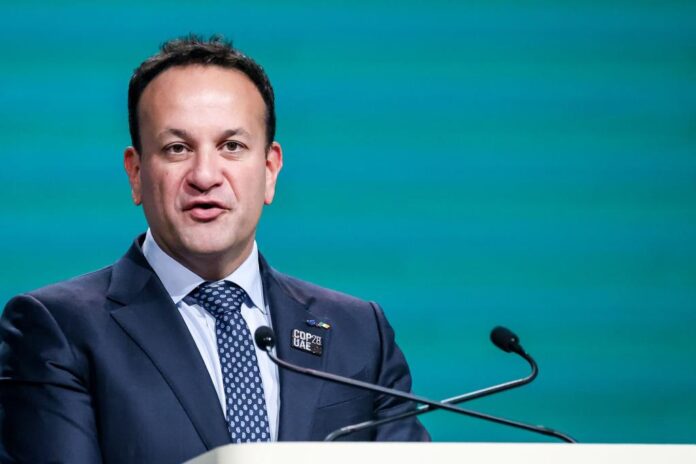
In response to the Dublin riots that followed the stabbing of three children by a foreign-national suspect, the Irish government has committed to combating so-called online “disinformation.”
This is putting it on a collision course with tech tycoon and X CEO Elon Musk, who fears his business model is under threat from the Irish government — and the ramifications could be global.
Immediately after the riots, which saw 34 arrests and tens of millions of damage to infrastructure, Ireland’s Prime Minister Leo Varadkar declared, “We’ll modernize our laws against incitement to hatred and hatred in general. That is more required than was ever the case before.”
For months, the Irish state has sought to fight “hate speech” under the terms of a bill stalled in the Senate, the Criminal Justice (Incitement to Violence or Hatred and Hate Offences) Bill 2022.
Under its terms, individuals with “protected characteristics” including race, color, nationality and other categories are given new legal protections against harms, both physical and mental, inflicted on them by offenders motivated by a flimsy and undefined term of “hatred.”
The part that’s garnered the most controversy is the section that would criminalize the preparation or possession of hateful material “with a view to the material being communicated to the public or a section of the public.”
One subsection places the onus on the accused to prove he did not intend to distribute the hateful material in public; many suggest this is contrary to Ireland’s common-law tradition of innocent until proven guilty.
Ireland’s police force, An Gardaí Siochana, can even request a warrant allowing it to enter a suspect’s premises and demand he give up his passwords to devices that may contain offending content.
Failure to hand them over could result in a 12-month jail sentence.
In July, Irish Parliament member Willie O’Dea described the bill as an attempt by Ireland’s Justice Minister Helen McEntee to “play to the woke gallery,” with former President Donald Trump stepping in attacking the proposal as “insane.”
Despite the bill eliciting domestic and worldwide opposition, McEntee is hell-bent on seeing the legislation pass — and she just survived a no-confidence vote Tuesday.
Dublin’s recent events have provided a renewed unity of purpose to, in the words of Varadkar, “ensure we never witness such terrible scenes . . . ever again.”
But Ireland may be stopped in its tracks by the biggest media baron in the world: X CEO Elon Musk.
Even before the riots, in August the prolific tweeter, or Xer, posted in response to an article outlining the draconian legislation, “X will be filing legal action to stop this. Can’t wait for discovery to start!”
Musk has stepped up his thinly veiled threats since then.
To Varadkar’s statement of intent, Musk responded that the Taoiseach “hates the Irish people.”
He has even threatened to dump Irish Twitter Files revealing the government’s partisan antics to censor free speech on Twitter.
While Musk’s outbursts may be a tad brash, he is right to be worried about the direction the Irish government is headed.
Musk’s reason for purchasing Twitter was to enhance free speech.
Fancying himself a “free-speech absolutist,” Musk went on a campaign to reinstate banned accounts including that of Donald Trump.
But with Ireland’s rumblings regarding the hate-speech bill, X’s business model of ensuring an open space for free speech could be in jeopardy.
Ireland passed into law the Online Safety and Media Regulation Act last December.
Through this, it will implement the European Union’s Digital Services Act, which, among other things, seeks to combat disinformation online.
It makes illegal: “Online content by which a person publishes or distributes written material, or a recording of visual images or sounds, contrary to section 2 (1) of the Prohibition of Incitement to Hatred Act 1989.”
But the recent hate-speech bill, if passed, would replace the 1989 statute, seeing a mismatch between X’s business model and the Irish government’s crusade against free speech.
Indeed, Ireland’s machinations may have worldwide implications.
Thanks to tax incentives, such as a low 12.5% corporate tax rate, Ireland is home to a plethora of social-media HQs, including X and Meta.
As such, the Irish Data Protection Commission is the main European regulator for X and the other Big Tech firms, often imposing hefty fines and regulations.
The DPC will be expected to enforce EU “hate speech” regulation
Brussels-based journalist Peter Caddle says such censorship could soon hit America as it will “likely be easier to apply EU censorship rules to all users rather than to try to split the user base into EU and non-EU users.
“Brussels-backed hate-speech rules could leak into normal social-media terms of service. This is another way international users including Americans could end up getting hit.”
In the Dublin riots’ aftermath, Ireland was the first EU member to trigger an alert under the DSA to notify social-media companies to remove online “hate speech” via the EU.
But thanks to a lack of Irish-speaking content moderators, agitators were able to circumvent bans by posting in Irish.
With Musk setting a red line on free speech, will future attempts at content suppression simply fall on deaf ears?
Already, McEntee has blamed X for the riots: “They did not take down content . . . it added to and I think fueled some of what happened, so I would like to engage with them on what they plan to do moving forward.”
Irish policymakers now find themselves at the center of the culture-war battleground of free speech on social media.
They seem to think they have full control over content appearing on X when in reality there are forces bigger than them at play.
Theo McDonald is based in Dublin and writes about economic and social issues.



